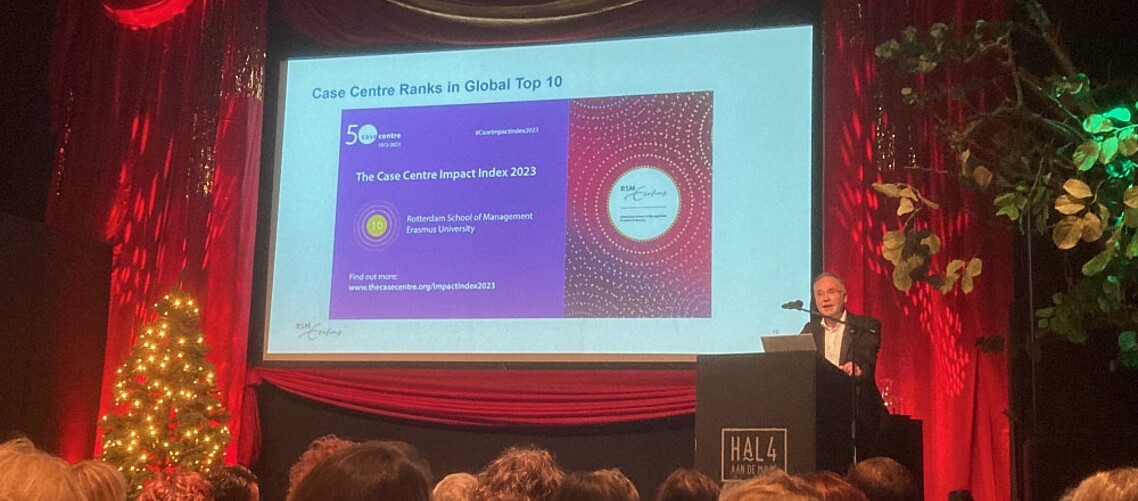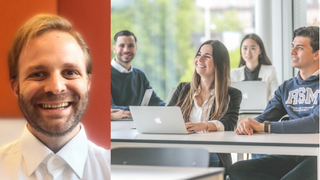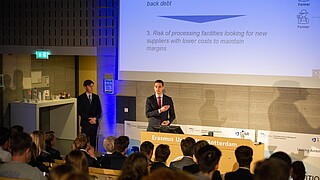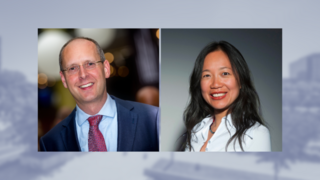Key successes over the years
Throughout the last 15 years, the CDC has flourished, building a substantial collection of cases that has elevated RSM's reputation in case development and competitions.
CDC cases, available through publishers such as Ivey Publishing, Harvard Business Publishing, SAGE Publishing and the RSM Case Centre, are widely utilised by universities and other organisations worldwide. Some of the CDC’s cases have won international case writing awards. Additionally, they have been featured in prominent publications such as the Financial Times and Harvard Business Review.
The CDC has also been instrumental in building RSM’s track record in international student case competitions. It has played a pivotal role in supporting the initiation and growth of the RSM STAR Case Club, and has developed case studies annually for the RSM STAR case Competition, contributing to the university's success on the global stage.
With approximately 300 cases spanning various management disciplines in its catalogue, CDC has become a leading authority, actively advancing expertise and networks while contributing to the innovation of the case method. Notably, RSM ranks in the Top 10 of the Case Centre's Impact Index 2023, a testament to the quality and recognition of RSM teaching cases.
Benefits of case teaching
Case teaching entails more than just an academic exercise or business skills training. It serves as a dynamic tool to scrutinise biases, question assumptions and equip students to navigate the intricacies of the contemporary world. RSM’s CDC case topics encompass a broad spectrum, from digital innovation to energy transition, and from organisational dilemmas to sustainable grassroots ventures. These diverse scenarios exemplify the breadth and relevance of CDC's impactful work.
Case teaching from two perspectives
To highlight the multifaceted benefits of case teaching, the CDC sought insights directly from students and professors. Bas Koene, director of the RSM Case Development Centre and Academic Director of the RSM MScBa Master in Management, states:
“Case based assignments, make our students appreciate the context and many stakeholders that are often affected by business decisions. A, marketing, supply, chain, or finance decision is never just a Technical question to be answered. Actually, students really like us to put the business issues in context. It increases their relevance and often the rich complexity of a real life context makes a business decision more interesting and turns it into a topic that they do not just solve in class, but actually also discuss later on over a drink in the pub or bring it up during a family dinner over the weekend.”
- Bas Koene, director of the RSM Case Development Centre and Academic Director of the RSM MScBa Master in Management
The CDC also interviewed Laurenz Gelbmann, current Chairman of the RSM STAR Case Club. This consultancy-based association prepares members to compete globally in case competitions against some of the best business schools in the world.
“Solving real-life business cases utilising a mixture of class-taught theoretical frameworks and previously acquired business intuition is the single best preparation for future business leaders.”
- Laurenz Gelbmann, chairman of RSM STAR Case Club
What lessons do you think students can learn from this hands-on experience that may not be as readily accessible in traditional lectures? How can solving real-world business cases add an extra layer to what is taught in the classroom setting?
“While RSM already provides its students with the opportunity to apply theoretical knowledge to real-life business cases, case solving – especially with a time constraint – certainly steps it up a notch. Being forced to use your previously acquired business intuition to solve some of the most complex issues companies currently face is, without a doubt, one of the best ways to prepare for life after your studies.”
This year's World Case Teaching Day theme is AI. Do you see any potential for generative artificial intelligence tools such as ChatGPT to match the problem-solving abilities demonstrated by case club members? How do you envision the role of AI in the future of solving cases and in international competitions?
“To be honest, I do not think that AI will match the problem-solving ability of our members any time soon. There are simply too many details and human factors that AI cannot yet assess as well as a trained analysts’ mind could. Nonetheless, AI already plays an important role in augmenting the skills of our members and therefore future consultants and business leaders. It is absolutely crucial for all students to stay on top of the latest technological developments and use them to their advantage.”
In recognition of #WorldCaseTeachingDay on 7 February, let's acknowledge the CDC's impactful journey and the transformative power of case teaching, bridging the gap between theory and real-world application.




